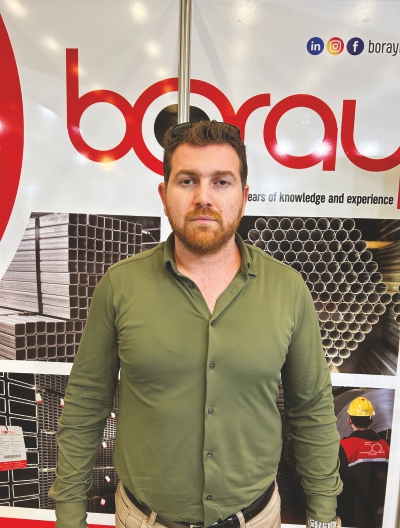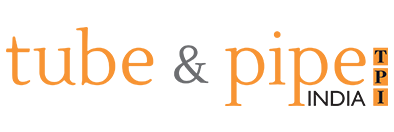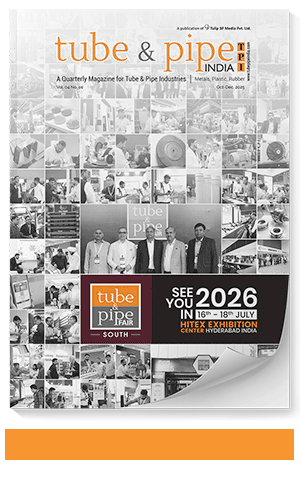
Boray Boru is a Turkish tubes and profiles manufacturing company, with major business comprising exports across the globe. In a conversation with Tube & Pipe India, Mr. Murat Kahraman, Director of Boray Boru, shares how the company came to be and a peek into the new factory set up by the parent group, Aytekin Group. He also placed sincere hopes for the industry’s future in light of recent geopolitical and national events.
Tube & Pipe India: Could you please give us a brief outline of the business journey of your company along with its crucial milestones?
Murat Kahraman: Boray Boru is a part of Aytekin Group which was established in 1968. Aytekin Group is active in the green housing, iron and steel sectors of Turkey and operates in more than 50 countries. Aytekin Group has 4 sister companies; ‘Aytekin Sera’ which is the greenhouse material production center; ‘Boray Boru’ manufacturing the galvanized tubes and pipes; ‘AYS Project’ in the field of projecting (agriculture) preparing turnkey modern greenhouse systems; ‘Aytekin Dis Ticaret’- foreign trade company carrying out the import and export activities of the group companies.
Boray Boru is a Turkey-based company located in Mersin, South Turkey. Our manufacturing facility is spread across 12,000 square meters. We are involved in the production of steel, carbon steel, and galvanized tubes and profiles for construction.
TPI: Tell us about your product portfolio along with its key strength and application.
MK: Initially, Aytekin entered the greenhouse sector with its profile and greenhouse material production. Eventually, in order to fulfill the needs in the region with the effect of growth, we established Boray Boru to meet our demand for galvanized tubes and profiles. We manufacture galvanized steel tubes, using different types of machinery. We are producing carbon steel tubes, ARW welded steel tubes, special style tubes, and different types of profiles which local mills are using. We specialize in manufacturing galvanized tubes, which form nearly 90 percent of our production.
Application wise, generally customers prefer to use our products for the greenhouse sector, for construction, carports, furniture, structures and buildings, etc.
TPI: What is your technology and business roadmap?
MK: We always do our best to be in step with the technologies. We have a research and development department and we use innovative technologies and products.
We continuously update ourselves with the technologies, new machinery, and new products, and try to produce niche products. We have a very flexible production line, and can produce different types and shapes of products, at a very fast pace. This enables us to compare with our competitors, both local and international, especially for galvanized products, as nearly 90 percent of our products are in the galvanized segment.
TPI: Can you shed some light on the market footprint and clientele of your company?
MK: Boray Boru was established 25 years ago, so we have a rich experience in the tube industry. Our location gives a strategic upper hand in business as we are located close, only at a kilometer’s distance, to Mersin International Port. Group-wise, we are exporting to a total of 69-70 countries, among which Boray Boru contributes to exports in over 50 countries.
We export to all major markets such as the UK, Romania, Israel, Mexico, some Arabic countries, Nigeria, some African countries, and Middle East countries.
Also Read: Tube & Pipe India Emagazine Apr-May Issue 2023
TPI: What are the recent developments at your end? Also, what will be the future plans for the business?
MK: Our factory is 55 years old, and we plan to move to a new factory, which will spread over 40,000 square meters. It is located close to our current factory. We also plan to add 2 new machines and produce tubes and profiles in smaller dimensions. Currently, our smallest dimension manufactured is 12 millimeters, and we will produce up to 0.56 millimeters in the future.
TPI: How do you see the market evolving in the future?
MK: The market is not stable currently, as the raw material prices are not stable. Moreover, global events also affect the market and the market prices, such as the Russian-Ukraine war, China’s situation, etc. Recently, unfortunately, we had an earthquake in Turkey, which again affected the market and us. Currently, we can only hope for things to get better in the future.










